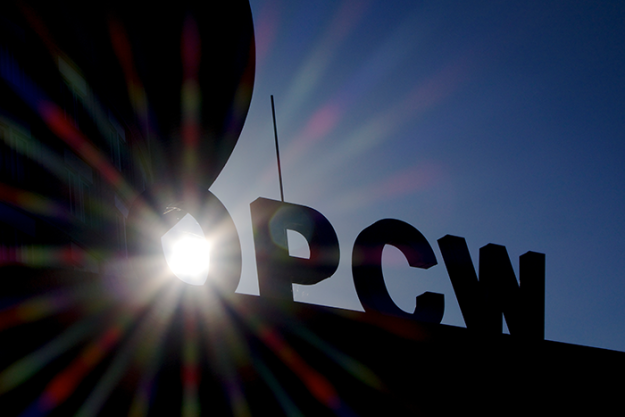
Field Exercise in Romania to Improve OPCW’s Rapid Response and Assistance Capabilities
THE HAGUE, Netherlands — 14 December 2017 — The Organisation for the Prohibition of Chemical Weapons (OPCW) conducted a Rapid Response and Assistance Mission (RRAM) training exercise to improve the OPCW’s capabilities for emergency response to possible chemical attacks. This field exercise took place in Romania from 11-15 December and is led by the Technical Secretariat of the OPCW in partnership with the Government of Romania and with support from the Government of Canada.
OPCW Director-General, Ambassador Ahmet Üzümcü stated: “When preventive measures fail, we must be prepared to quickly and effectively respond to an emergency. The OPCW has created the RRAM to assist countries that have joined the Chemical Weapons Convention upon their request. The RRAM consists of experts from across the OPCW and is a highly specialised unit with fast deployment capability.”
The field exercise tested a number of RRAM competencies required for addressing an incident of alleged use of toxic chemicals by a non-State actor. These competencies include: rapid deployment, on-site reconnaissance and detection of toxic chemicals, advice for the treatment of victims, decontamination of affected areas, and preparation of samples for off-site analysis. Parts of the exercise will be conducted in a controlled environment containing live chemical warfare agents.
Representatives of the World Health Organisation (WHO) and the International Criminal Police Organization (INTERPOL) also participated in the exercise to enhance operational protocols and to improve coordination during a response to a chemical attack.
The Government of Canada, through its WMD Threat Reduction Program, has funded the RRAM deployment costs during this exercise, while the Government of Romania is providing the training facilities and the assistance of specialised personnel.
Background
The Rapid Response and Assistance Mission (RRAM) was established in May 2016. The RRAM is deployed upon request of a State Party to the Chemical Weapons Convention that is in need of emergency assistance due to a chemical attack.
Comprised of a group of experts from the OPCW Technical Secretariat, the RRAM possesses capabilities to provide advice on a range of different scenarios that may occur during a chemical attack. The RRAM can also support a State Party in coordinating efforts with other International Organisations.
As the implementing body for the Chemical Weapons Convention, the OPCW oversees the global endeavour to permanently and verifiably eliminate chemical weapons. Since the Convention’s entry into force in 1997 – and with its 192 States Parties – it is the most successful disarmament treaty eliminating an entire class of weapons of mass destruction.
Over ninety-six per cent of all chemical weapon stockpiles declared by possessor States have been destroyed under OPCW verification. For its extensive efforts in eliminating chemical weapons, the OPCW received the 2013 Nobel Prize for Peace.
